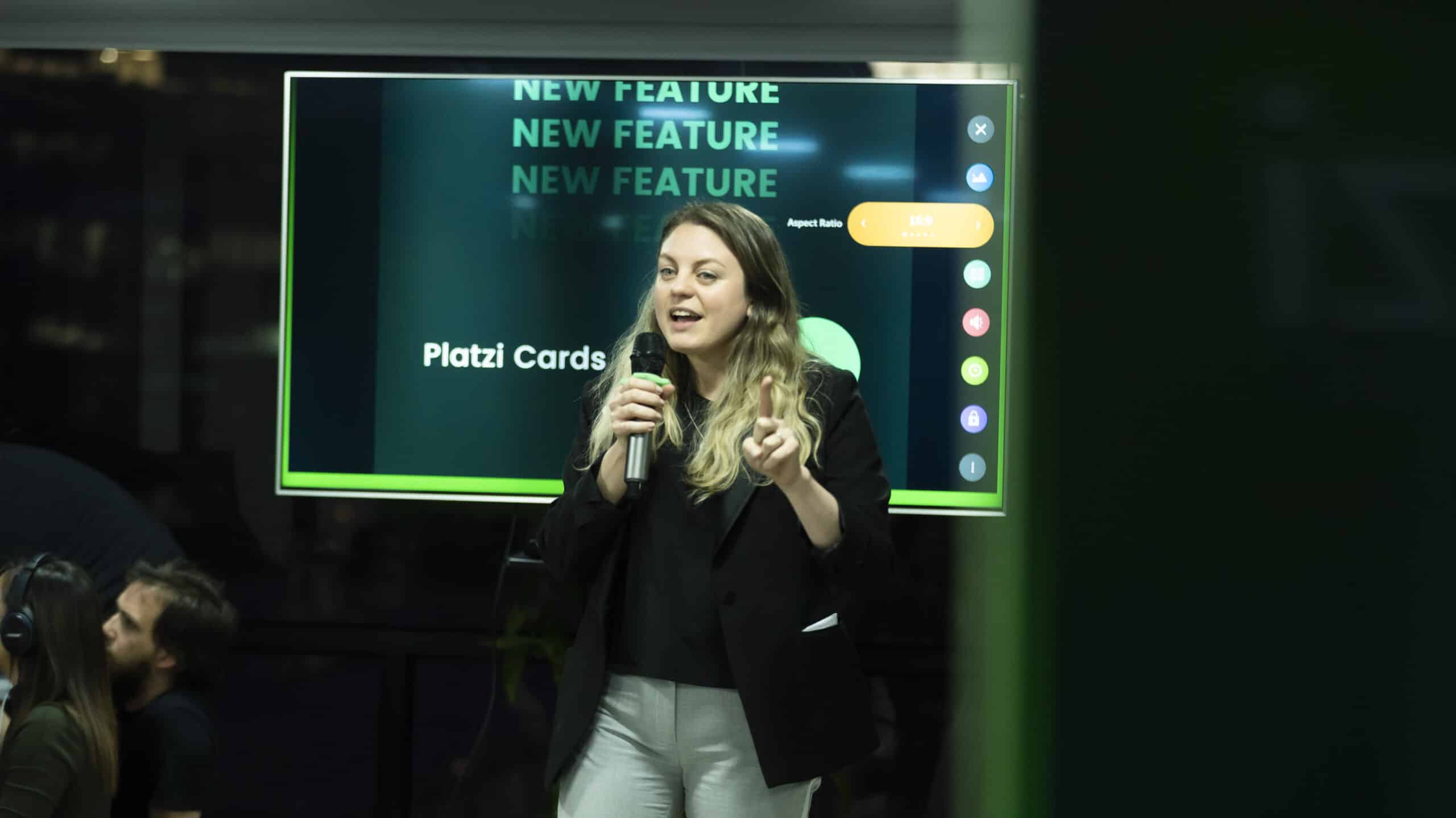Nicole Chapaval Advocates For More Latinas In Tech Through Teaching App Platzi
The gender disparity in STEM (science, technology, engineering, mathematics) jobs remains wide in Colombia. As of 2019, Colombian women hold 32.9 percent of all STEM jobs in the country.
Nicole Chapaval, the VP of education at Platzi, wants to get more women into STEM. As someone who found herself in tech, Chapaval understands what it takes for women to break into the industry.
Chapaval’s own passion for computer science started in her youth. Despite wanting her parents’ reservations about her career choice, she went to school to study software engineering.
“I learned how to code with Platzi. I was a student back in 2012 before I worked here,” she told mitú.
Platzi is a professional learning app targeting people ages 22 and older.

Instructors for the app are teaching livestream courses on programming, marketing, design, and business. The classes are available in English and Spanish.
Chapaval took an interest in content optimization practicing her coding on a personal blog while taking online courses. Starting out as a student advocate, the two founders of Platzi noticed her dedication and started to involve her more in the team.
As Platzi expanded, so did Chapaval’s job description.
Chapaval has been successful in her career. Yet, despite the success, she has seen the gender disparity firsthand. It has only further inspired Chavapal to work to get more women in their tech careers.
“One of my first jobs was in a company that was doing mobile applications and in this company there were 15 male developers and myself,” she says.
Wanting to engage with her male colleagues, Chapaval admitted to feeling weird when her enthusiasm was not reciprocated.
“I was always very extroverted and wanted to meet everyone [but] they didn’t want to talk with me,” she says.
Chapaval teaches 60 percent of computer sciences courses hoping to attract more women to the field.

“I think that representation is very important. So I try to be very vocal and very present with everything that we do in social media and in content creation,” she says.
Whether it be attending company livestreams or podcasts, it is imperative for Chapaval to have women witness others in the field to show the possibilities they can achieve.
Prideful, she also amplifies the achievements of other Latinas in STEM, like that of Diana Trujillo. Yet, she still expresses a need for more women to get managerial roles.
“I am very proud of Trujillo,” she says. “She’s from my hometown and she was in the NASA project that launched the Perseverance Rover. These kinds of things are great!”
Thirty-six percent of Platzi‘s more than 1 million students are women and it is growing.

“That’s very low,” she says, “but we doubled that percentage from 2018 so we still have a long way to go.”
A key step needed to attract more students is accessibility, both financially and in content. Platzi, Chapaval mentions, offers free programming courses that aim to be accessible to those with low internet connection in all parts of Colombia and Latin America.
“It’s not just about what you are learning as an individual, but also as a team or a group,” she says. “That also adds to the working ecosystem of Latin America.”
Regardless of gender, age, or background, Chapaval believes “education is very important if we want to break these blockers.”
In fact, two crucial skills she believes everyone should know is programming and English. “I like to say that both skills have to do with communications; communication with machines and with other people in the world,” she says.
In a time when remote jobs are pertinent due to the pandemic, having communication skills is a valuable asset for STEM careers in any country.
“Programming should be a basic skill that schools teach as well because it’s not only [beneficial] to be a developer,” Chapaval says. “It helps you understand how to solve problems in a logical way.”
Chapaval is grateful for her personal growth in STEM and hopes that Platzi can help others grow.

“I hope [students] can create what they dream of with the coding skills that they can get with us and can show it to the world,” she says.
“Latin America is a lovely region and a lot is happening here,” she says. “I hope that if this community can get to know each other and create the next big companies and big solutions for problems that we have right now, I would [be] fulfilled.”
As the gender disparity in STEM slowly expands, Chapaval continues to vouch for women to speak up and push through in the field.
Proudly Chapaval says, “Latinas are very extroverted, and the tech and software engineering world needs more extroverted people [like us] to add to their ecosystem.”
The App Store featured Platzi for Women’s History Month.




